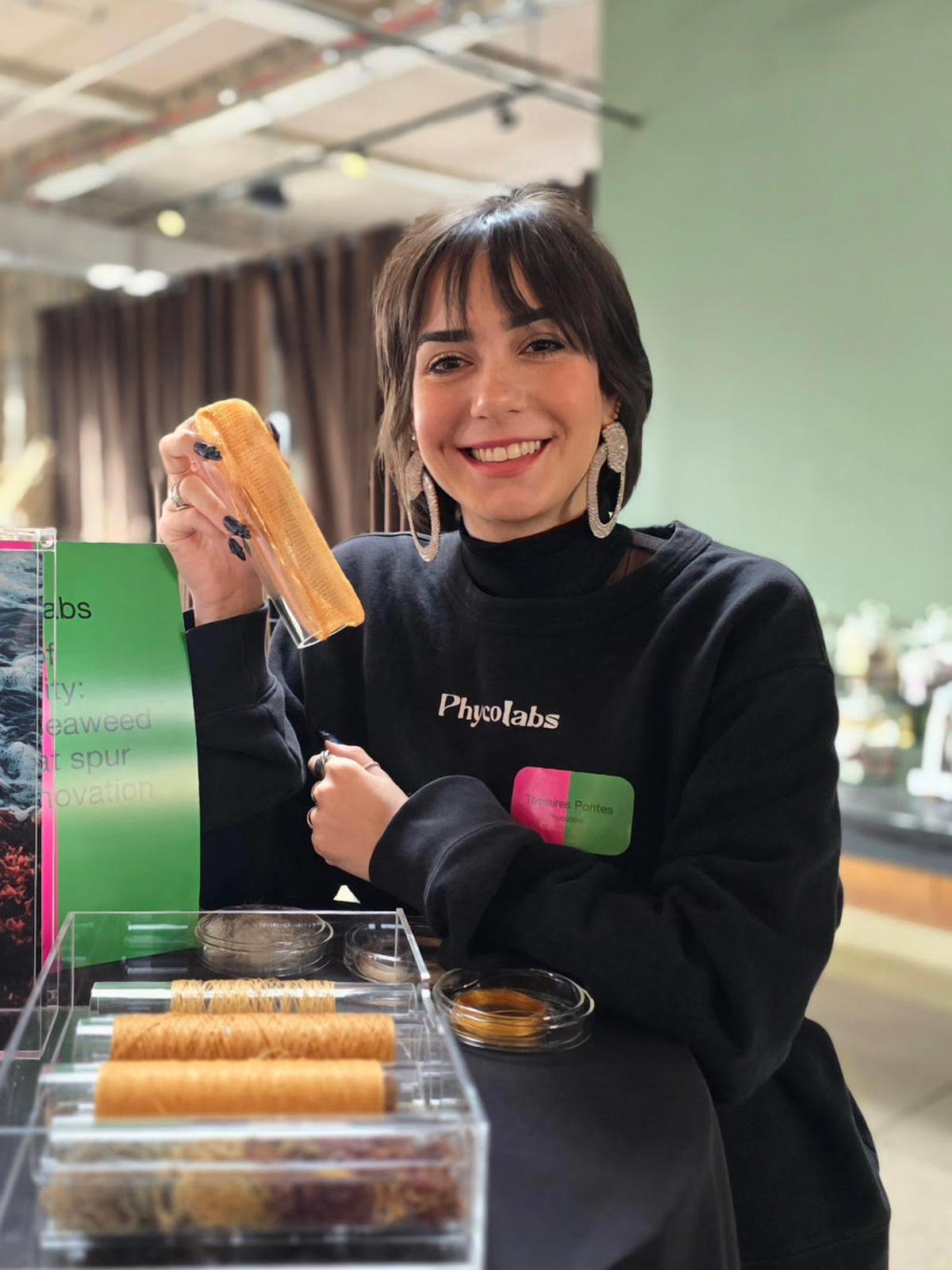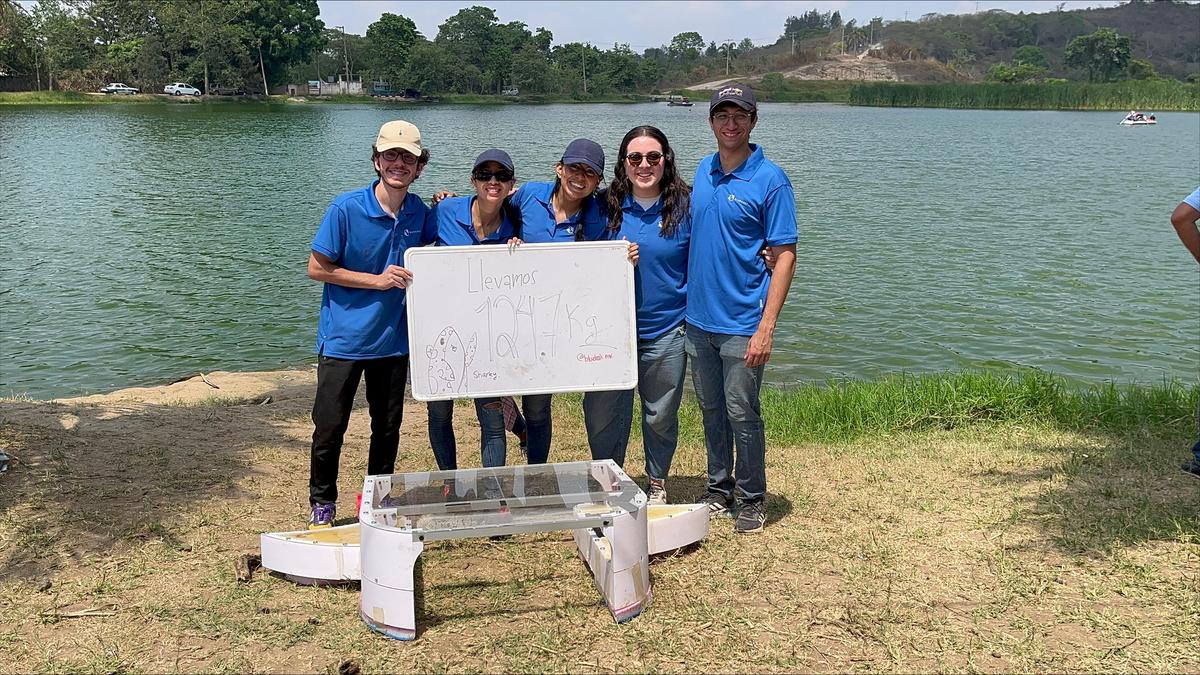Thamires Pontes’ tenable seaweed textile fibre
| Photo Credit: Ryan Galvao
Thamires Pontes has configured how to turn seaweed into a tenable textile fibre. The alternative to petrochemicals in clothing is the Brazil-based textile designer’s attempt at negating fashion’s waste and carbon emission problems (currently, the fashion industry is responsible for 10% of the world’s global carbon emissions according to the United Nations). Last month, Pontes’ timely innovation also won her the Unlock Her Future Prize of $100,000 by retail experiences brand, The Bicester Collection.
Increasingly, awards and prizes are becoming a gateway for women to have their ideas vetted, validated and made visible in a highly male-dominated entrepreneurial ecosystem. For instance, in May, Asan, a new-age menstrual cup that is aiming to eradicate period poverty in India, won its founder Ira Guha a Cartier Women’s Initiative fellowship. In June, Kenyan entrepreneur Beth Koigi’s atmospheric water generators — which draw clean water from the air — won her the 2023 Rolex Award for Enterprise.

Thamires Pontes
Such initiatives are put in perspective when you consider that, according to Harvard Business School, fewer than 3% of women-led businesses receive venture capital today. Yet, it is proven that if men and women were equally represented in entrepreneurship, global GDP could rise by 3%-6%, equivalent to up to $5 trillion. “Gender parity is literally good for business and the economy,” says Maria-Noel Vaeza, the UN Women’s regional director for the Americas and Caribbean, and jury member for this year’s Prize. “Only 30% of Parliament globally is represented by women. Today, 15% of mayors are women and only 6% of women are CEOs. Also, only 17% of women hold the position of board of directors in the private sector. There is so much work to be done.”
Supporting women-led initiatives
Whittled down from 954 applicants with early-stage start-up ideas (less than three years in operation) that align with the United Nations Sustainable Development Goals, only 108 were selected. Eight finalists shared their ideas in the days leading up to the finale. Valentina Agudelo from Colombia, for instance, started Salva Health that develops portable devices with AI to help detect breast cancer early, making it accessible to women in remote areas. Bluekali by Mexico-based Annie Rosas uses technology to clean oceans and rivers. Her app can take a picture of a discarded item and scan its make and plastic to help segregate waste correctly. Think of it as a Google image search for waste disposal. Four women entrepreneurs were finally anointed the winners.

Annie Rosas

The Bluekali team
But is a start-up competition really the solution to empowering women entrepreneurs? “These prizes certainly encourage and inspire more women and girls to come forward. But a competition environment runs the risk of not clearly being able to test the validity of ideas beyond the competition. For instance, is their capacity to deliver on the idea being considered? After all, the real test of entrepreneurship is in real life conditions,” says Upma Chawdhry, treasurer of Plan (India) International and board member of the organisation focused on children’s rights and equality for girls in over 80 countries. As an industry veteran, Chawdhry cautions against investing in fledgling ideas that haven’t had the time to grow their roots.
Some prizes are addressing this in their programme frameworks. For example, for the Cartier Women’s Initiative, an eligible criteria for application is a proven business model and revenue generation from its products for at least one year. Others such as the Unlock Her Future Prize see investing in early stage ideas as a prospective incubation journey. “It’s not just about giving them that cheque and leaving them,” says Chantal Khoueiry, chief culture officer of The Bicester Collection. “We are trying to integrate them into our business.” Noor Jaber, last year’s winner, is a case in point. The founder of Dubai-based Nawat Health, a platform that provides secure sexual and reproductive expert information to women and girls, hosted their first ever educational programme for The Bicester Collection’s female employees.
The Collection can also play match-maker between prize winners and brands or partners looking for sustainable alternatives. Past winner Nuahyr Zein’s plant-based alternatives to unethical exotic leather products could be one such.
Chantal Khoueiry at the Unlock Her Future Prize 2024 in Madrid
| Photo Credit:
Juan Naharro Gimenez
South Asia enters the picture
As the next edition of the prize travels closer to home, to South Asia, Khoueiry notes its potential in the region. “Encouragingly, India, Pakistan, and Bangladesh have seen a rise in social businesses over the last few decades. However, in 2023, the World Bank reported the rate of female ownership of firms was just 18%, significantly lower than the global average of 34%. It is indicative of systemic challenges such as limited access to finance, market opportunities, and societal support. This is where we can make a difference.”
According to Chawdhry, while the expansion into South Asia is crucial, it is still an ambitious undertaking. “The biggest challenge will be outreach. How can they tap talent wherever it exists? Because there is no dearth of it,” she says.
Overall, Chawdhry and others see such awards as a positive in a male-dominant start-up structure. “It will be a trigger within the system and inspire other women to come forward. These are credible brands to be associated with, and with it comes visibility.” And isn’t that the need of the hour?
The writer is an independent journalist based in London, writing on fashion, luxury and lifestyle.

